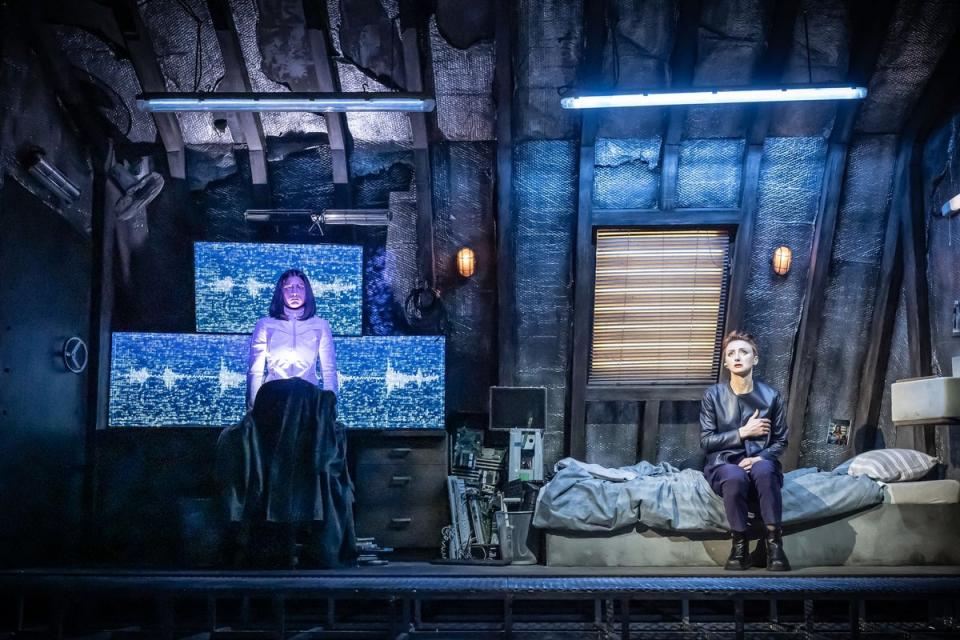Minority Report at Lyric Hammersmith review: sci-fi thriller is by turns smart and daft, mindbending and lame

Why doesn’t theatre, an imaginative and metaphorical space, do more sci-fi? A partial answer comes from this adaptation of Philip K Dick’s 1956 novella exploring totalitarianism and personal choice, which is by turns smart and daft, mind-expanding and lame.
The action is relocated to London in 2050, where subconscious criminal thoughts are detected by ‘Neuropin’ chips implanted in every citizen’s brain, resulting in immediate arrest and the consequent eradication of crime.
Until, that is, neurologist Dame Julia Anderton (Jodie McNee), who conceived the ‘Precrime’ system after her twin sister’s murder, is herself accused of incubating a homicide, during a gloating public lecture that’s already been interrupted by free-thought campaigners Cognito.
Obviously, a co-production travelling between theatres in Nottingham, Birmingham and London can’t compete with the pioneering visual effects and star power of the 2002 Steven Spielberg/Tom Cruise film. So actor-turned-writer David Haig foregrounds the stark moral question at the centre of the story – freedom versus security – and the way Dick anticipated humanity’s willing surrender to our phones and other data-gatherers. There’s also a neat sideswipe at politicians and law-enforcers who don’t believe the rules apply to them.

He also indulges in technobabble: the Neuropins only work if three precognitive humans, trapped in possibly the worst stage set I’ve ever seen, “surrender their neurons to the orgonoid”.
There is lots of knowing jokiness, too, to which near-future fiction is often prey. In 2050 Britain, the NHS has been “dismantled”, Apple Watches have become “retro” and Julia is constantly threatening to demote her omniscient 3D AI assistant David “back to Alexa”, or worse, Siri. Ho ho.
Designer Jon Bausor uses pivoting metal grids and video screens to sketch in a Blade Runner version of rainy future London, complete with a chase involving self-driving vehicles, which is inventive but inevitably a bit naff.
Director Max Webster favours pace and stridency over subtlety in a show that lasts a brisk 90 minutes. There’s some awkward, expressionistic choreography. McNee, tense and birdlike with a russet coxcomb of hair, is a defiantly chilly protagonist.
The stimulating intellectual provocations of the script are constantly undermined by clichéd and slapdash plotting. Julia, her ineffectual husband George and Cognito leader Fleming seem able to burgle buildings, defeat armed cops and hack computer systems of this autocratic state with surprising ease, always escaping down a lift-shaft or over a rickety rooftop gantry. The “infallible” Precrime system can’t even detect disruptive protestors.
Haig is a superb character actor on stage and screen, from Our Country’s Good and Dead Funny to The Thin Blue Line and Killing Eve. This adaptation of Dick’s speculative fiction is a bold departure from the well-made, historical scripts he’s previously written. It’s fast and sporadically shrewd but too often requires not just the suspension, but the complete annihilation of disbelief.
Lyric Hammersmith, to May 18; tickets at lyric.co.uk


